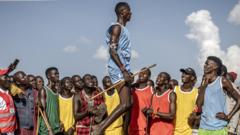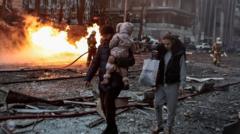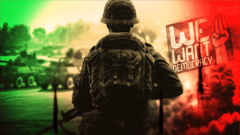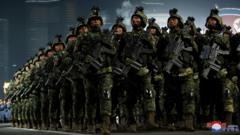As North Korean troops join the conflict in Ukraine, insights from defectors reveal a complex picture of their training, morale, and the potential impacts of their involvement. Their loyalty to the regime, combined with challenging conditions, raises questions about effectiveness in combat.**
Evaluating North Korean Troops Deployed in Ukraine: Perspectives from Defectors**

Evaluating North Korean Troops Deployed in Ukraine: Perspectives from Defectors**
Former North Korean soldiers assess the capabilities and motivations of their compatriots fighting alongside Russian forces in Ukraine.**
In the ongoing conflict between Russia and Ukraine, recent reports indicate the deployment of North Korean troops to assist Russian forces in the Kursk region, reportedly numbering around 11,000. The U.S. and Ukraine have acknowledged these soldiers’ presence and claim they are engaged in combat, though casualty figures remain unverified. Former North Korean military personnel share their experiences and insights, suggesting a nuanced understanding of the troops' capabilities and motivations.
One defector, Haneul, recalls his time in the North Korean military, marked by severe malnutrition and a lack of basic resources. Soldiers often received subpar rations, leading to significant weight loss and poor health. He managed to defect in 2012, illustrating the desperate circumstances motivating many to leave. Haneul’s perspective reflects the physical limitations these troops might face, as they are reportedly deployed at a time when resources are scarce amid Kim Jong Un’s prioritization of weaponry over troop welfare.
Expert assessments suggest that the North Korean troops in Ukraine primarily consist of members from the elite Storm Corps, who are perceived to possess a higher level of training compared to standard units. However, defectors like Lee Hyun Seung acknowledge that despite their special status, these troops remain undertrained and underfed. Reports indicate that video footage has shown dysmorphic soldiers who lack the robustness often portrayed in North Korean propaganda.
South Korean intelligence indicates that the morale among these troops may be high, but their understanding of modern warfare is lacking—combination factors that could impact their effectiveness on the battlefield compared to seasoned Ukrainian forces. Communication issues, highlighted by instances of friendly fire, further complicate their operational capabilities.
Additionally, cultural and ideological forces play a significant role in the mindset of North Korean soldiers. Defectors claim that many troops come from working-class backgrounds, instilling a deep-seated loyalty to the regime. They undergo intense indoctrination, which contributes positively to their fighting spirit. Ryu Seonghyun, another defector, notes that ambitions may propel soldiers to view deployment in Ukraine as an opportunity for advancement despite the inherent dangers.
Though the North Korean soldiers’ commitment may be solid, experts warn against perceiving them as mere expendables in a desperate Russian strategy. The potential for rotation could allow for further deployments, as North Korea possesses numerous soldiers who could be sent without impacting the regime's stability. Moreover, the hierarchical nature of North Korean society means that the troops sent to Ukraine are unlikely to be from influential backgrounds, making their losses politically inconsequential for Kim Jong Un.
The lack of modern communication within the battalions presents challenges for Ukrainian forces who hope to persuade North Korean soldiers to defect. Strategies to introduce psychological operations may include using loudspeakers or drones to communicate defection messages. Nevertheless, the stark pressures on these individuals mean that they are unlikely to abandon their posts easily.
The dangerous conditions North Korean soldiers face, both on the battlefield and in their inward loyalty, create a complex picture for the ongoing conflict in Ukraine. Though their capabilities are questioned, many advocates argue that underestimating the resilience of these troops could lead to significant consequences in combat. The broader implications of their involvement may reverberate throughout geopolitical relations and military assessments in the future.
One defector, Haneul, recalls his time in the North Korean military, marked by severe malnutrition and a lack of basic resources. Soldiers often received subpar rations, leading to significant weight loss and poor health. He managed to defect in 2012, illustrating the desperate circumstances motivating many to leave. Haneul’s perspective reflects the physical limitations these troops might face, as they are reportedly deployed at a time when resources are scarce amid Kim Jong Un’s prioritization of weaponry over troop welfare.
Expert assessments suggest that the North Korean troops in Ukraine primarily consist of members from the elite Storm Corps, who are perceived to possess a higher level of training compared to standard units. However, defectors like Lee Hyun Seung acknowledge that despite their special status, these troops remain undertrained and underfed. Reports indicate that video footage has shown dysmorphic soldiers who lack the robustness often portrayed in North Korean propaganda.
South Korean intelligence indicates that the morale among these troops may be high, but their understanding of modern warfare is lacking—combination factors that could impact their effectiveness on the battlefield compared to seasoned Ukrainian forces. Communication issues, highlighted by instances of friendly fire, further complicate their operational capabilities.
Additionally, cultural and ideological forces play a significant role in the mindset of North Korean soldiers. Defectors claim that many troops come from working-class backgrounds, instilling a deep-seated loyalty to the regime. They undergo intense indoctrination, which contributes positively to their fighting spirit. Ryu Seonghyun, another defector, notes that ambitions may propel soldiers to view deployment in Ukraine as an opportunity for advancement despite the inherent dangers.
Though the North Korean soldiers’ commitment may be solid, experts warn against perceiving them as mere expendables in a desperate Russian strategy. The potential for rotation could allow for further deployments, as North Korea possesses numerous soldiers who could be sent without impacting the regime's stability. Moreover, the hierarchical nature of North Korean society means that the troops sent to Ukraine are unlikely to be from influential backgrounds, making their losses politically inconsequential for Kim Jong Un.
The lack of modern communication within the battalions presents challenges for Ukrainian forces who hope to persuade North Korean soldiers to defect. Strategies to introduce psychological operations may include using loudspeakers or drones to communicate defection messages. Nevertheless, the stark pressures on these individuals mean that they are unlikely to abandon their posts easily.
The dangerous conditions North Korean soldiers face, both on the battlefield and in their inward loyalty, create a complex picture for the ongoing conflict in Ukraine. Though their capabilities are questioned, many advocates argue that underestimating the resilience of these troops could lead to significant consequences in combat. The broader implications of their involvement may reverberate throughout geopolitical relations and military assessments in the future.





















